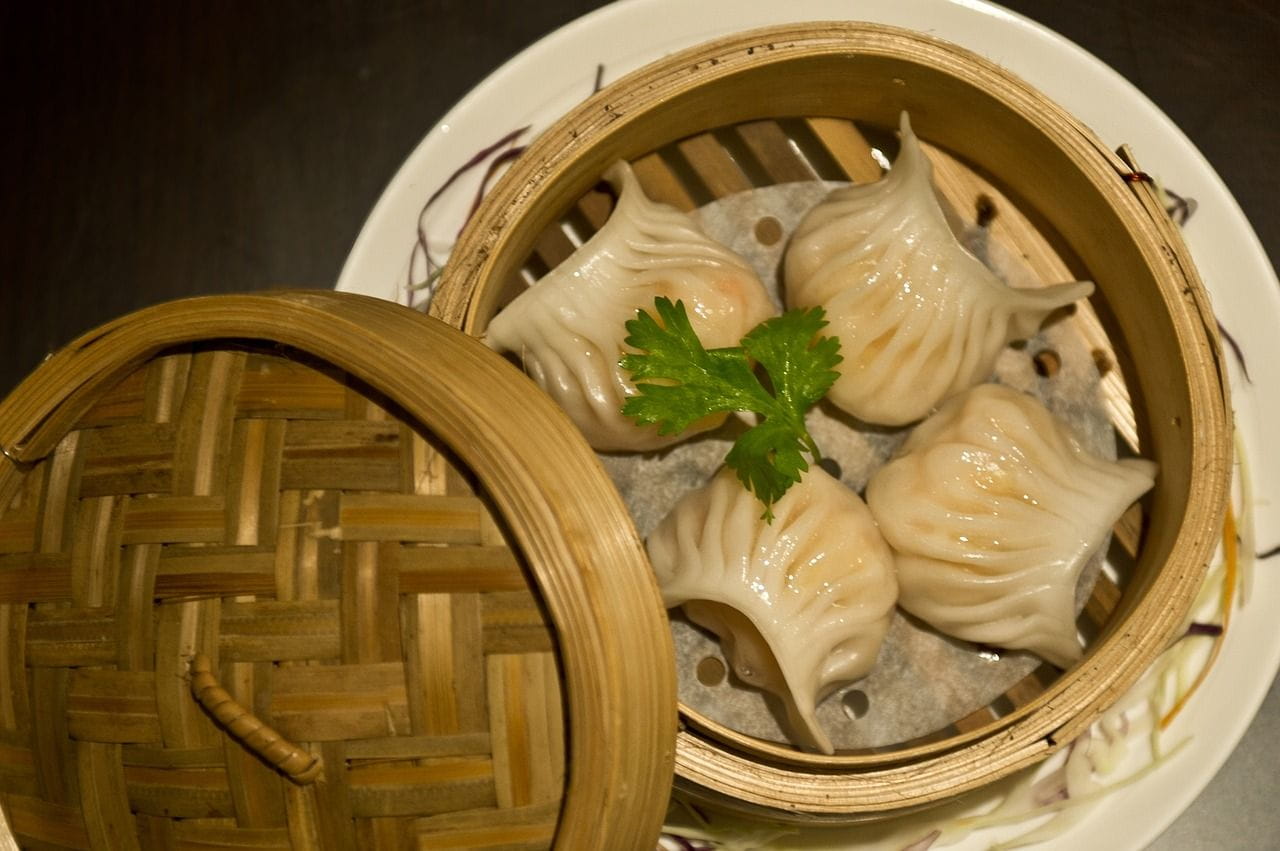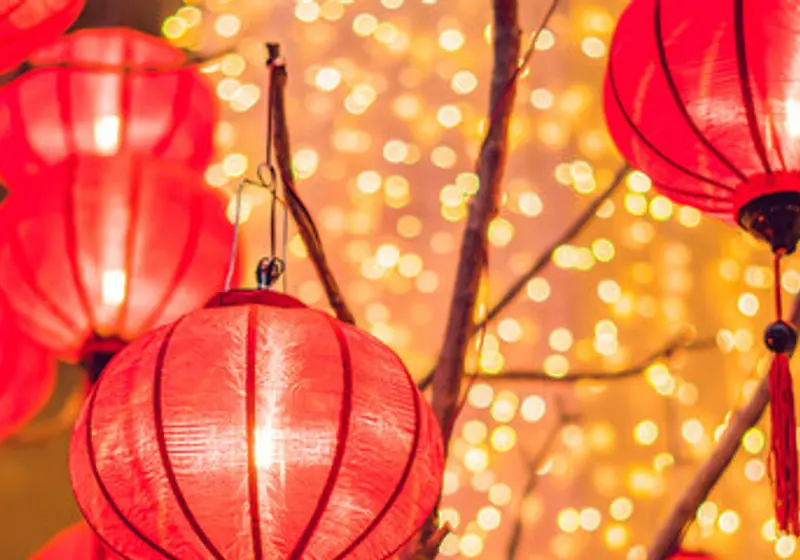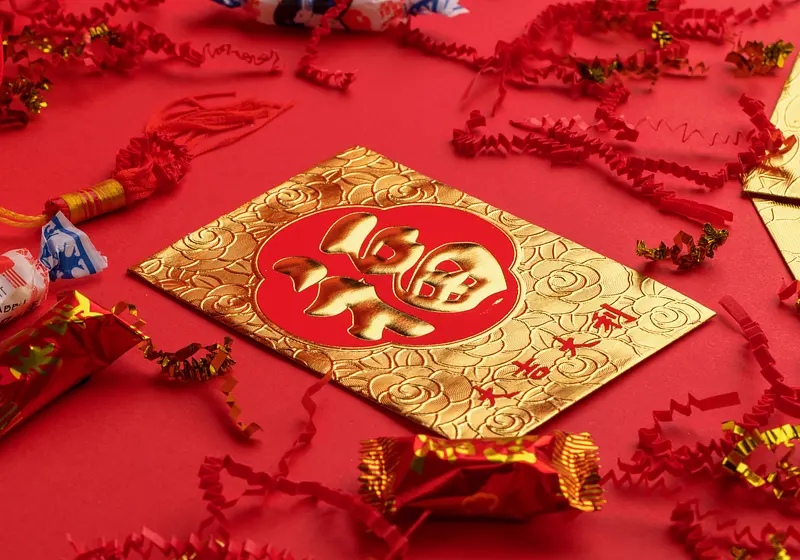Celebrating Lunar New Year is an essential part of the Chinese community, standing as one of the most important and cherished traditions. Commonly known as the Spring Festival, this important occasion marks the commencement of the lunar calendar with a handful of festivities, rich traditions, and profound symbolism.
Families gather together to participate in rituals that span thousands of generations. As the new year arrives, Lunar New Year becomes a time for reflection, unity, and the embrace of a hopeful future, and there are many exciting ways for people from all backgrounds to come together to honor and celebrate Chinese culture.
Let us slide into your dms 🥰
Get notified of top trending articles like this one every week! (we won't spam you)Attend a Lantern Festival
Chinese Lantern Festivals are breathtaking displays of illuminated lanterns, symbolizing hope, brightness, and unity. In various cities, especially in China, elaborate lantern exhibitions feature intricate designs and vibrant colors. The craftsmanship and storytelling of the lanterns make this experience a truly unique celebration of Chinese culture and honor the hard work of Chinese artisans.

Image Credit: John Lee from Pexels

Take the Quiz: What Creative Hobby Should You Try?
Looking for a way to express your creativity but not sure where to start? Then this is the quiz for you!
Visit Chinatown
Exploring Chinatown during Chinese New Year immerses you in a world of cultural richness. Activities range from traditional dragon and lion dances to martial arts demonstrations. You can also sample authentic cuisine at bustling food markets or participate in a traditional tea ceremony. In many Chinatowns, iconic Chinese New Year Parades showcase elaborate floats, martial arts, and the mesmerizing Golden Dragon, making it an unforgettable cultural experience.

Image Credit: Tong Su from Unsplash
Give Red Envelopes
The act of giving red envelopes, or "hongbao"(红包), is a tradition deeply rooted in Chinese culture. These envelopes often contain money and are presented to younger or unmarried family members.
The significance lies in the color red, an important color in Chinese culture, symbolizing good luck and warding off evil spirits. Families exchange red envelopes during dinner or distribute them during community celebrations, creating an atmosphere of joy, blessings, and good fortune.
Plan a Family Reunion
A Chinese New Year family reunion is a heartfelt gathering filled with traditions. The reunion dinner, known as "Nian Ye Fan,"(年夜饭) is a lavish feast featuring symbolic dishes. For example, fish symbolizes prosperity, while dumplings represent wealth.
Families often engage in activities like making dumplings together, reinforcing the bonds between generations. In Beijing, the Temple Fair during the Spring Festival provides a vibrant backdrop for family reunions, featuring folk performances, games, and traditional snacks.

Image Credit: Jonathan Valencia from Pixabay
Watch a Cultural Performance
Cultural performances showcase the richness of Chinese traditions. Dragon and lion dances are not only visually stunning but also carry symbolic meaning, scaring away evil spirits and bringing in good luck.
Traditional music performances featuring instruments like the erhu (Chinese violin/fiddle) and guzheng (Chinese plucked zither) add a melodic layer to the festivities. One popular Chinese performance, Shen Yun, tours internationally and spreads awareness of Chinese stories, dances, and culture worldwide.
Light Fireworks/Firecrackers
The tradition of lighting fireworks and firecrackers, or baozhu (爆竹), dates back to ancient times, believed to scare away evil spirits and welcome good fortune. Amazing fireworks displays across China illuminate the night sky, creating a dazzling spectacle. Families may also engage in setting off their own fireworks, contributing all of the joyful sounds. The vibrant colors and explosive energy make this tradition an exciting way to welcome the new year.

Image Credit: Vernon Raineil Cenzon from Unsplash
Participate in a Chinese Tea Ceremony
Engaging in a Chinese Tea Ceremony is a serene and relaxing celebration of Chinese culture. This ancient practice involves preparing and savoring tea with a focus on mindfulness and appreciation. In Bejing, the famous Laoshe Teahouse offers immersive tea ceremonies, allowing participants to experience the artistry and cultural significance of tea-making.
There are also many Chinese tea houses located across the United States, such as Ching Ching CH, located in Washington, DC, Red Blossom Tea in San Francisco, California, and Wang Lao Ji in New York City. Participating in Chinese tea ceremonies is a tranquil and educational way to connect with ancient Chinese traditions.

Image Credit: Pauloleong2002 from Wikimedia Commons
Play Traditional Chinese Games
Playing traditional games with friends and family brings a fun and personal element to the festivities. Mahjong, a strategic tile-based game, is a favorite during Chinese New Year gatherings. In parks and community centers, you might also find people playing traditional games like Shuttlecock kicking and Chinese Checkers, adding even more excitement to the celebration.

Image Credit: Wikimedia Commons
Learn about Chinese Traditions
Exploring Chinese traditions during Lunar New Year is another enriching experience. Understanding the symbolism behind customs adds depth and importance to these significant celebrations.
For example, learning about the importance of the Chinese zodiac and how each year is associated with an animal can provide insights into cultural and personal beliefs. In museums or cultural centers, interactive exhibits may showcase the history and symbolism of traditional clothing, decorations, and rituals.

Image Credit: kotoffei from iStock
Reflect and Set Resolutions
Reflecting on the past year and setting resolutions aligns with the theme of self-improvement. Families may gather to discuss achievements and challenges, fostering a sense of unity and support.
Setting positive intentions for the new year can involve practices like writing wishes on wishing trees or creating resolution scrolls. In modern celebrations, virtual forums and social media platforms may be used for reflection and goal-setting within the community.
I hope that many people will learn about and appreciate the resilience and culture of the Chinese community this Lunar New Year. No matter where you come from or your background, it is important to honor other cultures and traditions and engage in different celebrations from around the globe.
Gong hei fat choy! (Wishing you prosperity!)












